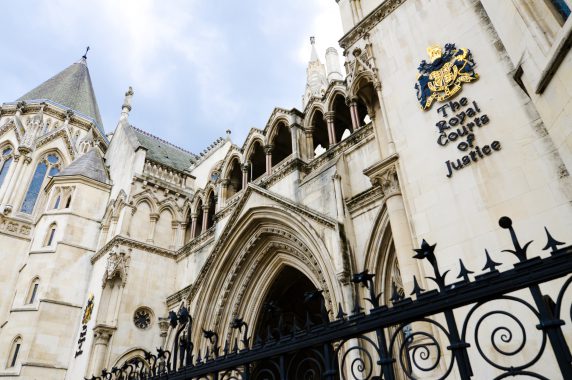Negative conclusions can be drawn by the GMC’s medical practitioners tribunal service (MPTS) panel if doctors decide not to testify or give evidence in their disciplinary tribunal, the high court has ruled.
In the case of R Kuzmin v GMC, the high court ruled that the GMC’s MPTS could draw ‘adverse inference’ due to the GP’s lack of statement to explain his actions.
The judge added that the GMC should consider publishing advice for doctors on this subject.
Dr Kuzmin was initially accused of poor record keeping and use of EMIS when working in GP out-of-hours service Hampshire Doctors, as well as missing a referral during the earlier part of his training.
The GMC opened an investigation into the doctor and conditions were placed on his registration. However, Hampshire Doctors was not notified of these changes, which resulted in further tribunal proceedings on the grounds of dishonesty.
The GP filed a statement saying he was not dishonest, however later applied to withdraw this statement.
The GMC said the tribunal should draw adverse inference from the GP’s refusal to give evidence, which the medical practitioners tribunal agreed with. The GP challenged this decision in the high court, however the judge ruled it was acceptable to draw ‘adverse inference’ from a lack of statement.
Lord Justice Hickinbottom said: ‘An MPT panel therefore has the power to draw an adverse inference from the failure of a charged person to give evidence at all or in relation to a particular issue/question, without any express sanction by statute, statutory instrument or GMC guidance/policy; and without any express guidance on how that power should be exercised.
‘However, that does not mean that, for the avoidance of doubt, guidance from the GMC (and other regulators of, amongst others, the healthcare professions) confirming the existence of the power and how it might be used would not be useful for disciplinary tribunal panels and the practitioners who might appear before them: such guidance, which might be short, could clearly be of considerable practical assistance.
‘Speaking for myself, I hope that, after any consultation they deem helpful, the regulators will consider publishing such advice as they each consider appropriate.’
Senior associate at law firm Kingsley Napley, Shannett Thompson, said the GMC would have to send ‘clear notices’ to doctors ahead of future hearings.
She said: ‘The GMC needs to consult on, and produce a statement or guidance as to how it will approach cases in future where the doctor refuses to give evidence after a charge has been levelled against them. Whilst in “Kuzmin” the court pronounced some factors which should be borne in mind by tribunals when they consider whether or not to draw an adverse inference, it is not sufficient that a case-by-case approach is taken given the importance of this issue.
‘Further, the GMC will have to send clear notices to doctors ahead of any substantive hearing setting out that tribunals may be asked to draw an adverse inference in circumstances where they refuse to give evidence and there is no reasonable explanation given, or the explanation given is rejected by the tribunal.
‘This means, at present, the position for doctors is uncertain, and legal advisors will need to ensure that they appropriately advise clients about the possible ramifications in relevant cases.’
A GMC spokesperson said: ‘This judgment has provided helpful clarity that Medical practitioners tribunals can draw inferences from silence in limited but appropriate circumstances.
‘We are working with the MPTS to draft guidance to help tribunals interpret the ruling.’
Pulse July survey
Take our July 2025 survey to potentially win £1.000 worth of tokens












